Despite a full weekend in which high-ranking EU officials, major press freedom organisations and local NGOs were focused on commemorating the fourth anniversary of Daphne Caruana Galizia’s assassination, Labour party media failed to report anything on the topic on its online portal.
Instead, Labour’s media outlet’s local news articles on 16 October focused on a press conference featuring president of Malta George Vella, an article attacking the Nationalist party for failing to take a position on Labour’s plans for the relaxation of cannabis laws and two other minor pieces featuring a singer and a new cardiology theatre.
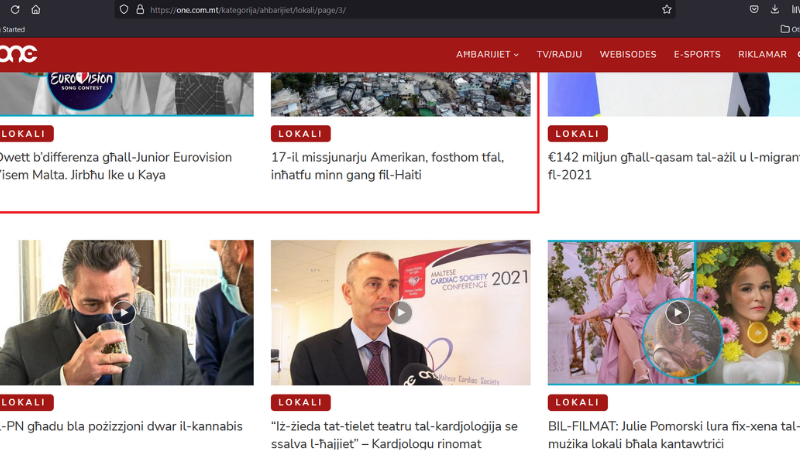
The four local news articles uploaded by One on 16 October. Red line marks articles that were uploaded on the 16th (top-right, bottom row).
The Public Broadcasting Services’ (PBS) TVM, recently in hot water after a leaked internal memo exposed how journalists and producers were expected to submit their selected topics for current affairs programs 15 days in advance, did report some of the weekend’s events on its online portal, although they were shorn of details and often not longer than a few paragraphs.
While the Labour party’s main media arm, One, failed to report major goings-on including a meeting between prime minister Robert Abela and five press freedom organisations and the vigils held both in Bidnija and in Valletta on Saturday, among others, TVM’s reporting of the events left a lot to be desired.
Referring to an action in which local NGO Moviment Graffitti commemorated Caruana Galizia’s assassination by dropping a banner in front of the Electrogas power station bearing the words ‘an agreement soaked in blood’, TVM’s coverage spans just three paragraphs, omitting all references to Graffitti’s efforts to highlight how corruption involving the state and big business remains rampant.
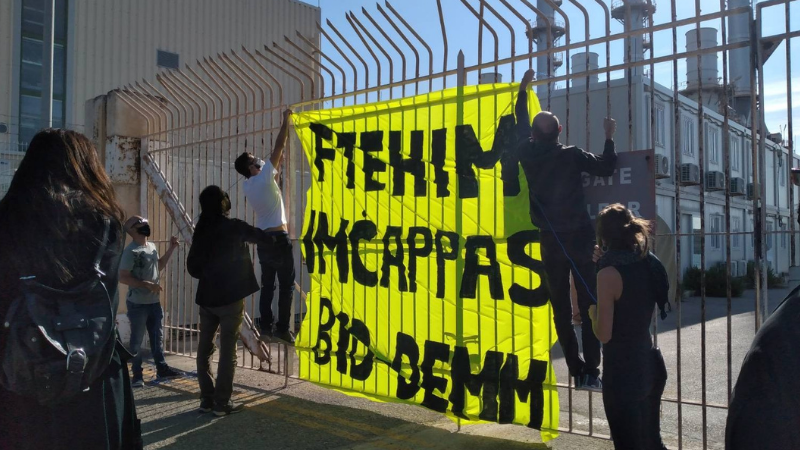
Moviment Graffitti activists hanging up the banner in front of the Electrogas power station on Saturday morning.
TVM also failed to mention Graffitti’s explicit calls for immediate investigation on the Electrogas deal and the group’s emphasis on the fact that Cabinet ministers did not take any concerted action to address the culture of impunity highlighted by the findings of the public inquiry board.
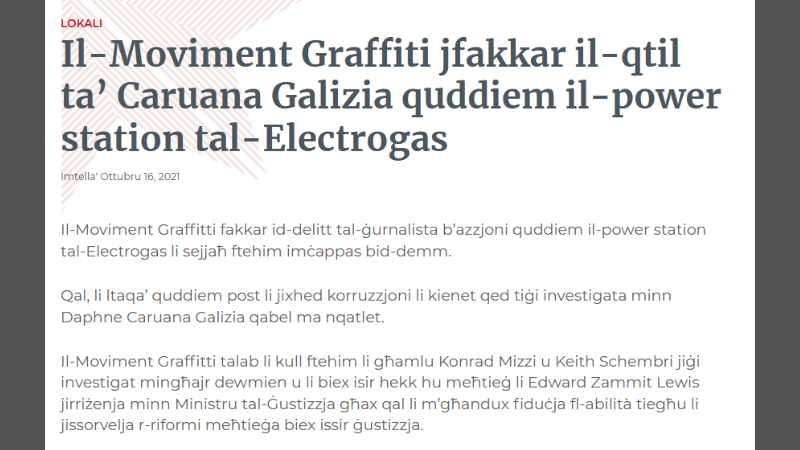
TVM’s report on Moviment Graffitti’s action.
A similar pattern emerges with other events that were poorly covered by the state broadcaster. While TVM did report what Repubblika president Robert Aquilina and Occupy Justice member Pia Zammit said at a vigil held on Saturday evening, the anniversary of the assassination, it completely neglected to report what was said by ten speakers belonging to international press freedom organisations and other figures advocating for the protection of journalists in Malta.
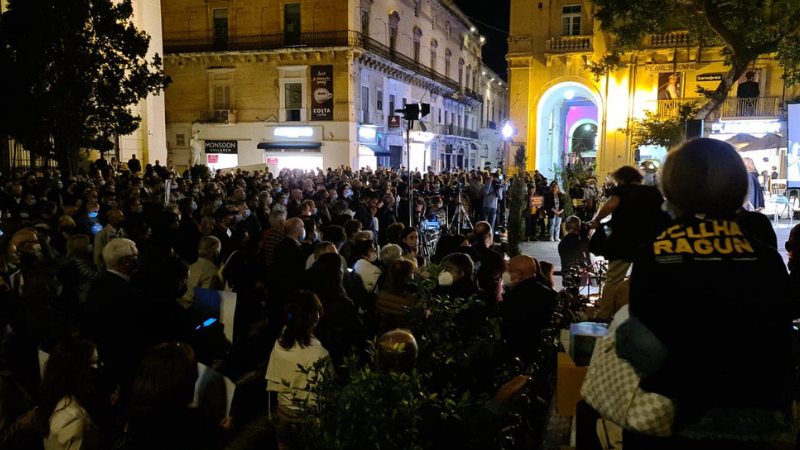
The crowd attending Repubblika’s vigil on Saturday evening. Photo: Repubblika
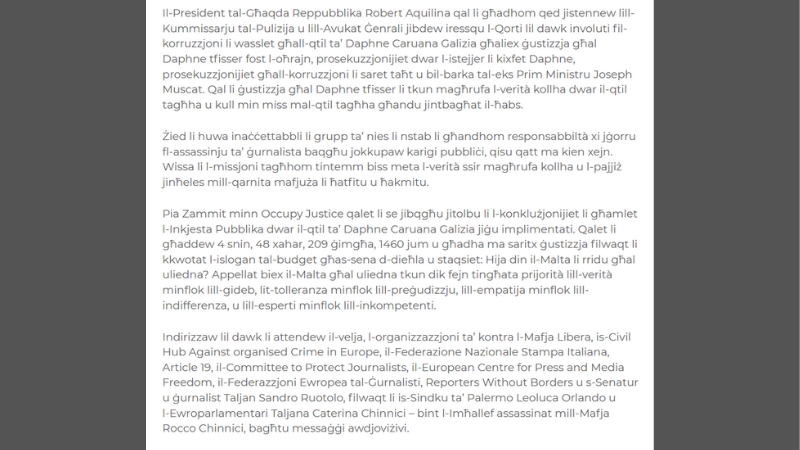
TVM’s reporting on Saturday evening’s vigil in Valletta.
While social media posts from prominent local or international political figures were generally reported without omissions due to their brevity, TVM failed to report key points in the statement made by green party ADPD on Saturday.
Referring specifically to PBS and the news reports exposing TVM’s attempts at controlling the topics chosen for current affairs programs, ADPD’s deputy general secretary, Sandra Gauci, described the state broadcaster as “an extension of the government’s propaganda machine”. TVM’s article completely omits Gauci’s points, choosing instead to cite only the later statements made by ADPD chairperson Carmel Cacopardo.
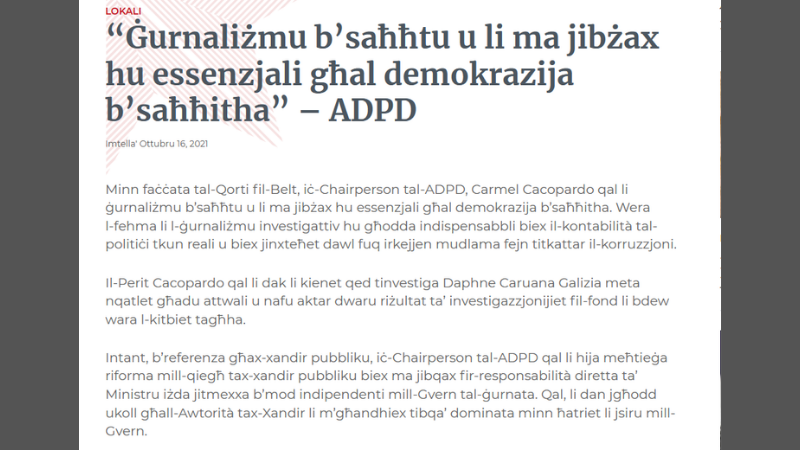
TVM’s report on ADPD’s statements made on Saturday.
In a recent interview with The Shift, Reporters Without Borders’ (RSF) Head of News Bureau for the EU and the Balkans Pavol Szalai highlighted RSF’s concerns in relation to Malta’s media landscape, pointing out that Malta’s media landscape is “unprecedented in Europe”. According to RSF’s Press Freedom Index, Malta remains the third-worst ranking country in the EU, after Bulgaria and Hungary.
The Shift’s past reporting has exposed several issues related to PBS’ ability to function independently of the ruling party in government. Three weeks ago, this news room’s reporting on issues plaguing the state broadcaster was solidified when research carried out by the Centre for Media, Data and Society classified PBS as ‘state-controlled media’. According to this research, PBS was classified as such due to its total reliance on state-funding, its ownership and control through the state and the lack of editorial independence from state actors.

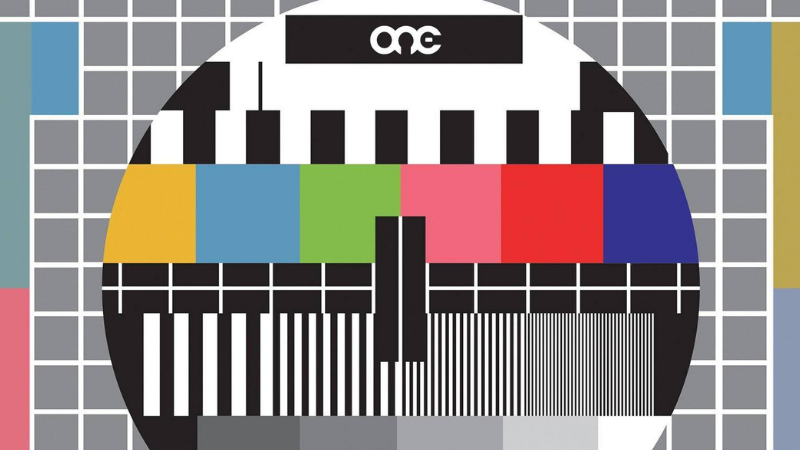


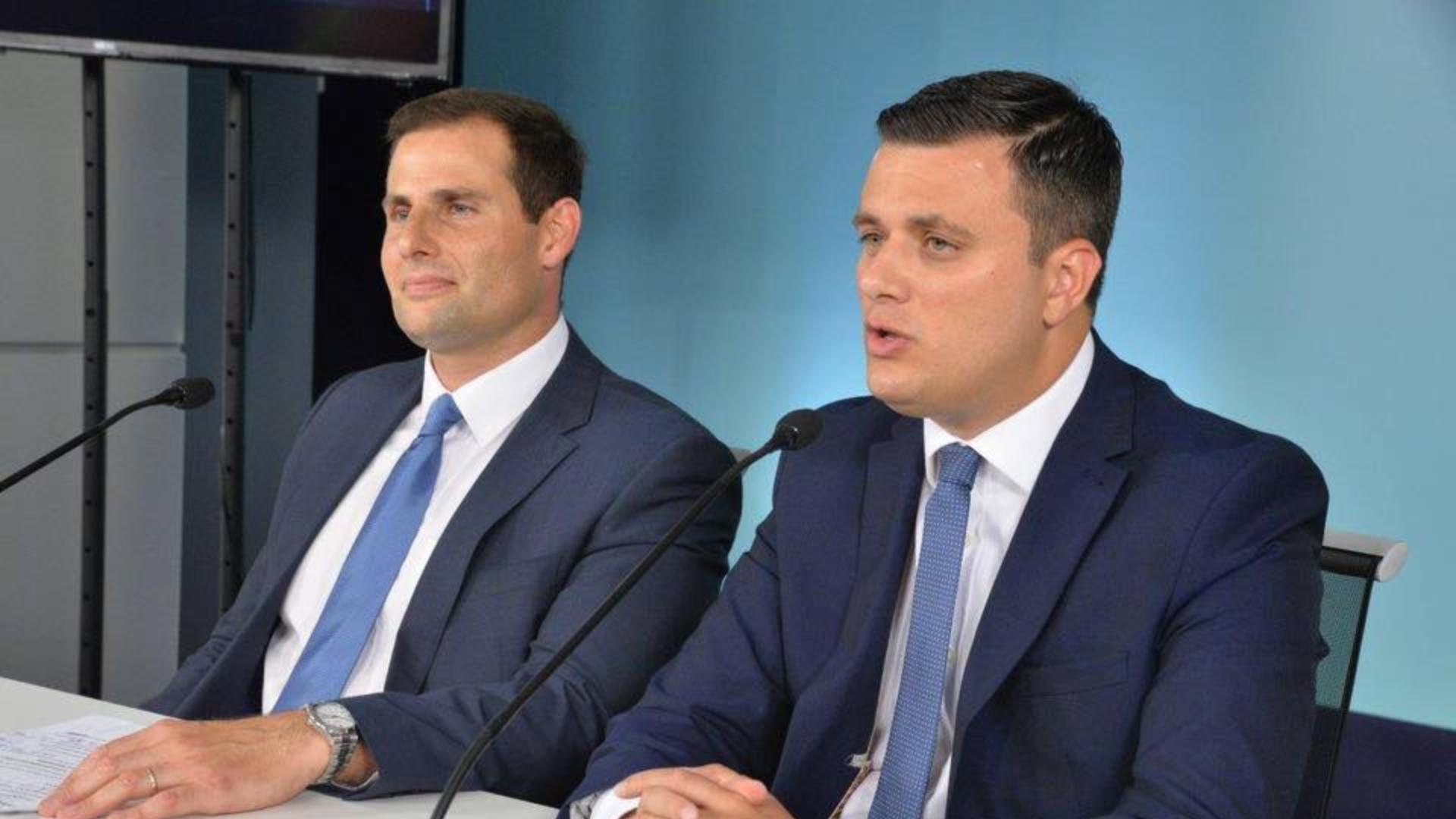










No surprise here. Let’s be honest, has anything changed since Abela took over? He promised ‘continuity’ and he is continuing to deliver.